These are changes that one would not expect from a mature city, because regeneration mainly affects the city centre. There, ordinary and historical buildings are replaced by high-rise buildings. With the aim of stopping urban sprawl and making Tirana greener. The idea: to compress the city inward in order to create green areas in areas that become free.
What is striking is that all this is happening in the capital of one of the poorest countries in Europe, where per capita GDP is about a third of the EU average. According to city officials, a dramatic reconstruction is necessary: Tirana, with a current population of about 420,000, is growing by about 30,000 a year, so the question is how to plan this sustainably, said the city’s socialist mayor, Erion Villiaj. About the project.
Loss of history and high prices?
When you walk around the city centre, the newly constructed buildings quickly catch your eye. In light of this – and the fact that the historic buildings had to be cleared – critics of the project feared the city would be divided up between developers without consulting residents, who would ultimately change everything beyond recognition. Not only is history being lost, but housing prices are also rising.
The rapid change is evident in Skanderbeg’s central square, where just a few years ago there were large numbers of cars pouring in. The square was created during the Italian occupation – and features a mix of Italian modernism from the 1930s and Soviet architecture. The concrete surface of the square has been preserved, but now only pedestrians cross their paths through the created pedestrian zone.
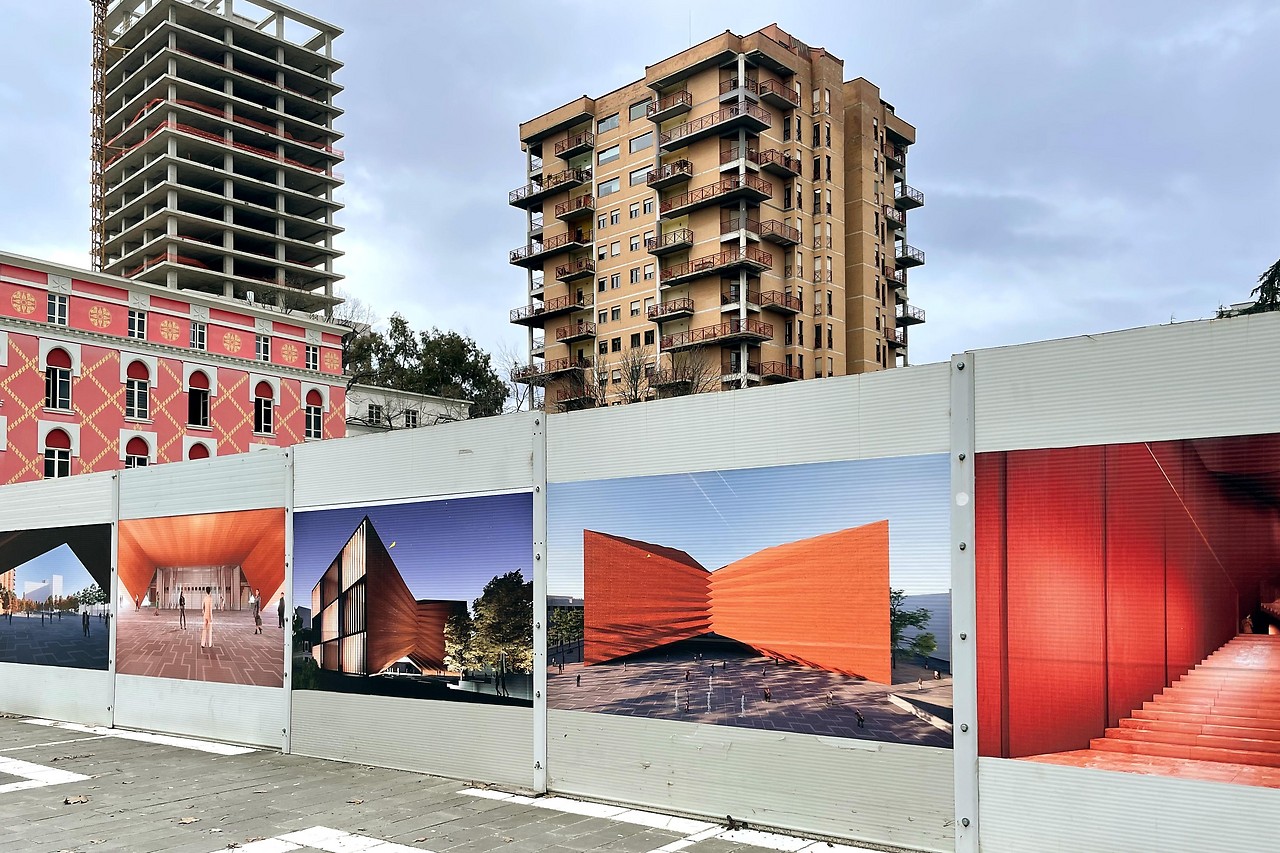
Demolition amid loud protests
As you look around, you will quickly notice new high-rise buildings with more advanced design and newly restored buildings. A striking and important building in the eyes of many has been lost since May 2020, demolished in a cloak and dagger operation – despite widespread protests. The Teatro Competare was designed in 1939 by Italian architect Giulio Berti and initially served as an Italian Army facility before becoming the National Theater in 1947.
Famous artists and architects have strongly criticized the demolition – not only for the protection of the monument, but also for questionable bidding, circumvention of competition law and plans for a new theater far from the centre. Activists occupied the building for two years before a demolition crew arrived late at night and without warning. The fact that all of this happened during the pandemic was clearly no coincidence.
The architect wants to bring forests to cities
The go-ahead for the center’s renovation was given in 2016 – at which time plans were announced under the ‘Tirana 2030’ formula. City planners argued that the influx and associated new development after the end of the communist regime had given the city character, but order and structure were missing. Italian architect Stefano Boeri designed a forest ring as a concept surrounding the city centre.
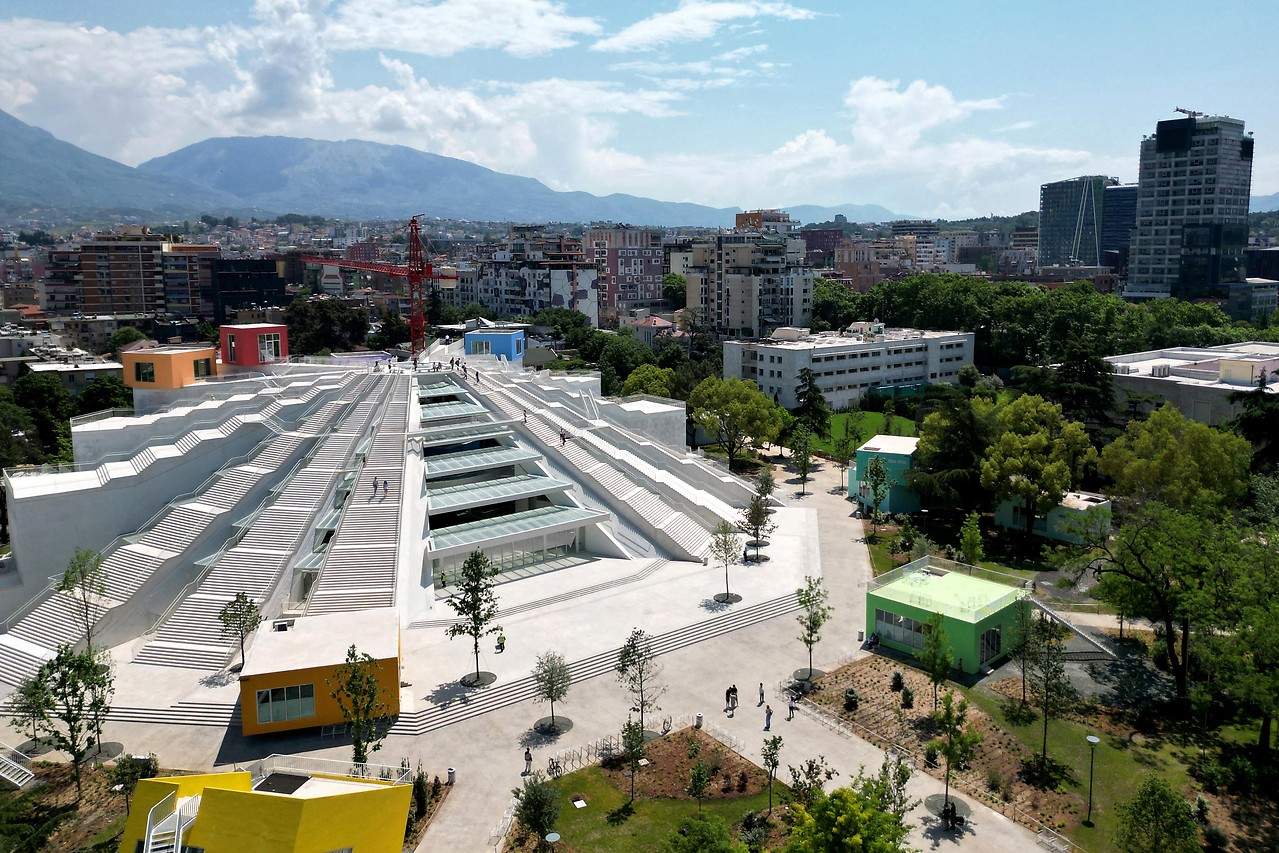
Bowery is an advocate of luxurious green spaces – and has achieved international fame with corresponding designs and projects. In Milan, for example, his project “Bosco Verticale” (Vertical Forest), consisting mainly of two stunningly green high-rise buildings, was realized. In China, Boeri is behind more expansive projects: futuristic-looking “forest cities” are planned there, huge areas that are both city and forest.
The city wants to retain access to the space
Of course, there is hardly any municipal funding in Tirana, and the city coffers do not allow it. Thus, the offer to real estate developers and property owners means that they are allowed to build (preferably upwards according to the concept), but the open spaces surrounding the properties must be left for the city to use as public space. However, critics say that developments so far do not meet the set standards.
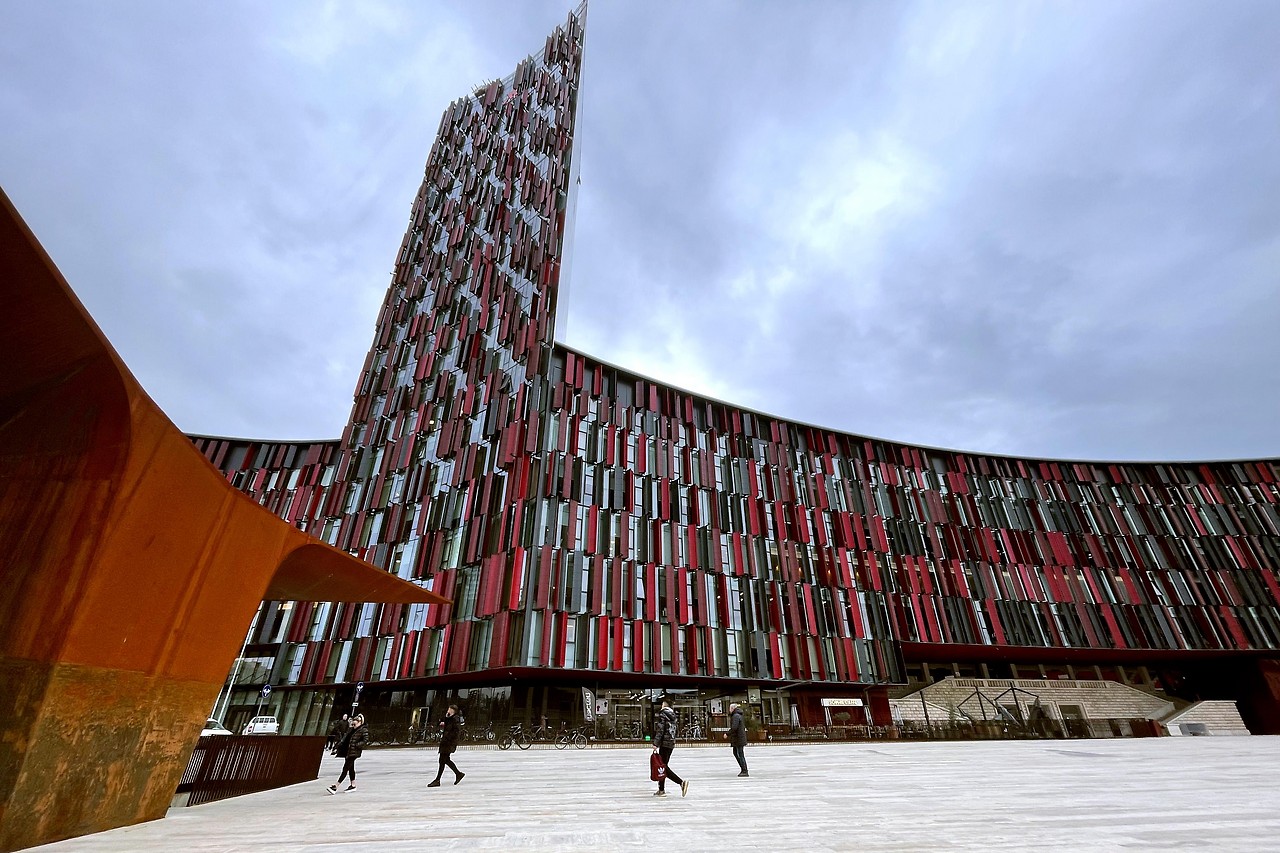
Aside from several designs, there is no detailed plan for what the redesigned center will ultimately look like. Opponents say it is impossible for the public to understand in detail how the city will develop. There are also concerns about where the money for all the projects will come from. According to experts, the country has become a hotbed for money laundering.
An opportunity for the Italian mafia?
Italy is also supposed to play a role in this area: anti-mafia prosecutors in Italy discovered that the ‘Ndrangheta mafia organization recognized the new building in Tirana as a money laundering opportunity. The Financial Action Task Force on Money Laundering (FATF), an international institution that monitors money laundering, has placed Albania on the “grey list.”
This means that the country is considered highly vulnerable to money laundering due to systemic weaknesses. Of all the issues, the real estate sector was rated as particularly worrisome. The Albanian Financial Intelligence Unit (FIU) stated in one of its reports that “large real estate investments with unknown sources of funds” had been monitored, which it classified as “suspicious.”
Progress in combating money laundering
However, local politicians argue that such operations have been largely systematically prevented, citing increased national precautions against money laundering. In fact, the Council of Europe acknowledges the positive steps taken by Albania in a recent report. Necessary measures have been taken to correct deficiencies with respect to trustees subject to anti-money laundering requirements.
At the same time, efforts are being made to facilitate the authorities’ access to information regarding beneficial ownership. Measures to regulate and monitor notaries and real estate agents have also been strengthened, according to the current report of the Council of Europe. Licenses can now be revoked in the event of breaches of money laundering legislation.

“Food practitioner. Bacon guru. Infuriatingly humble zombie enthusiast. Total student.”



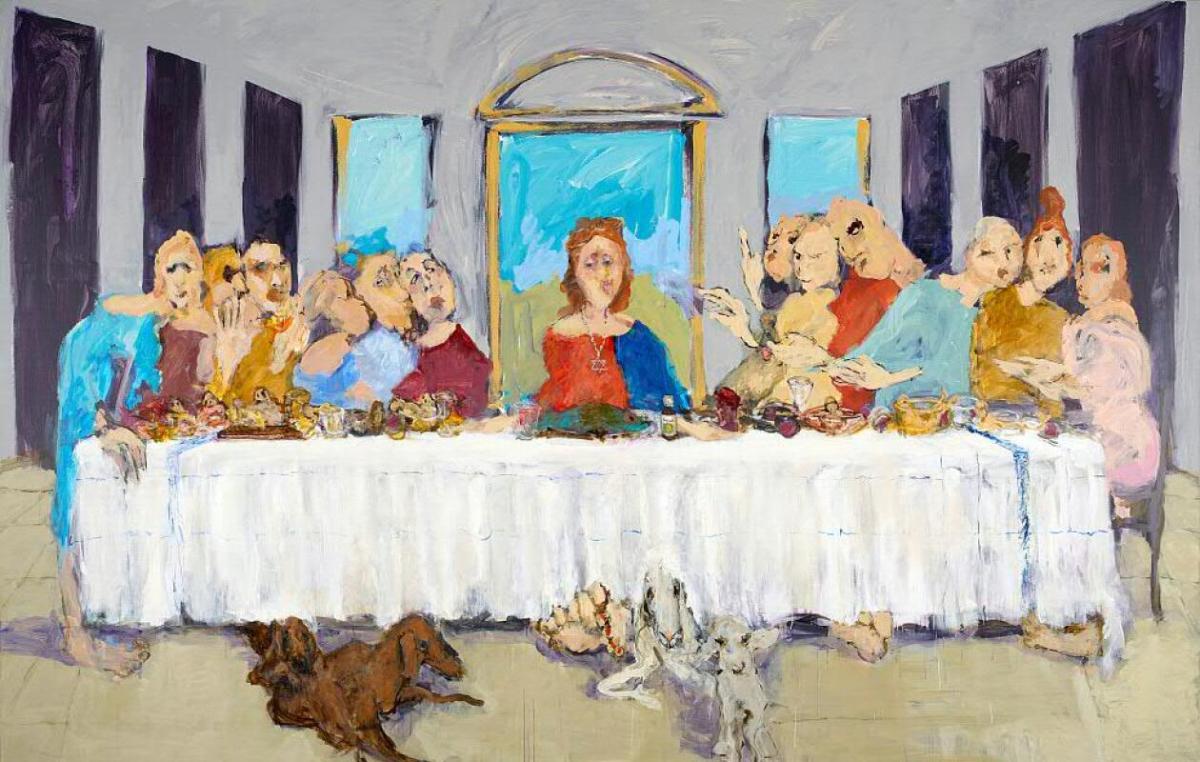


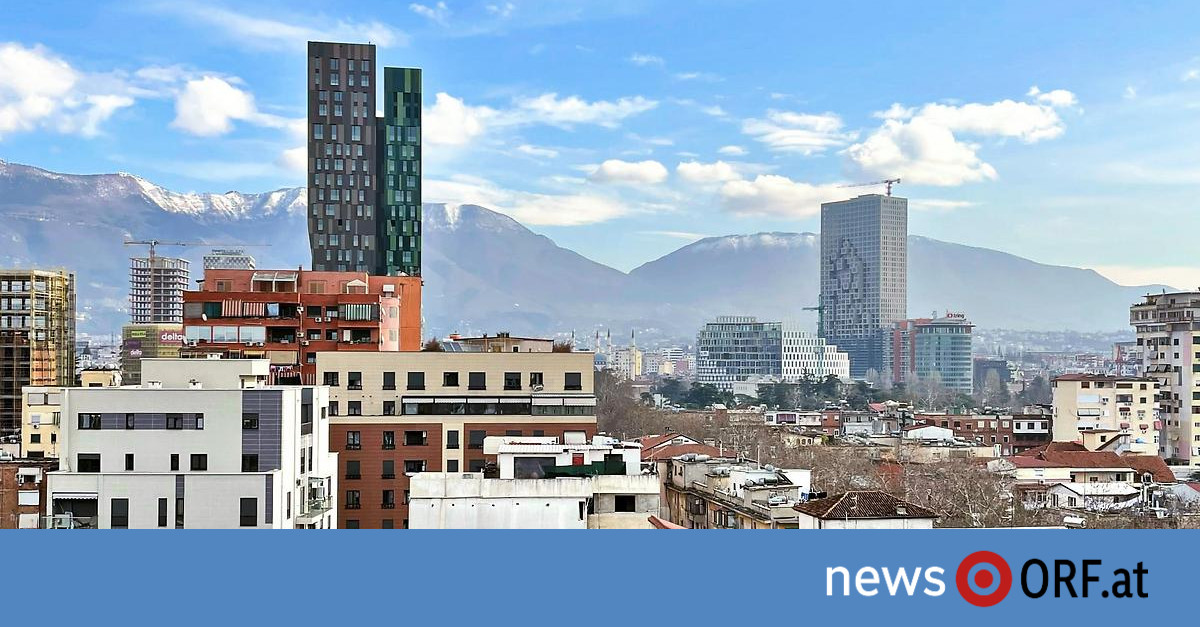
More Stories
The Prime Minister of Scotland announces her resignation
Velimski promotes asylum solution in Rwanda | Debris.com
Thomas Gottschalk moves to Bavaria